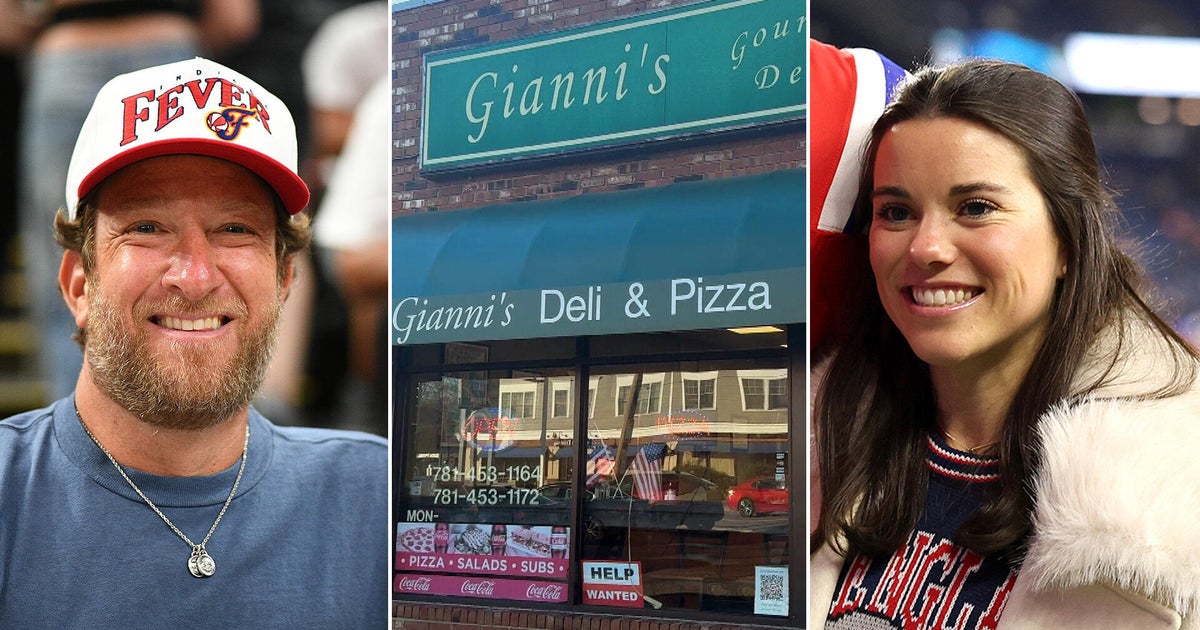Movie Review: 'The Place Beyond the Pines'
By Bill Wine
KYW Newsradio 1060
PHILADELPHIA (CBS) — The place referred to in The Place Beyond the Pines is Schenectady, NY, the title a translation of its Mohawk name.
And a sense of place is one among many strengths of this moody, sprawling crime drama, a melancholy meditation on the connection between generations.
Sorrowful and bleak but vibrant and commanding, The Place Beyond the Pines is three stories in one, a self-contained trilogy of short stories connected by the father-son bond that runs through the film.
The tales are certainly interconnected, but they're also self-contained, as the point of view changes from tale to tale.
The first drops in on Ryan Gosling's Luke, a heavily tattooed, peroxide-blond, rootless, motorcycle-riding daredevil with a touring carnival who finds out that he has unknowingly fathered a son with a local diner waitress, Romina, played by Eva Mendes.
Luke decides he wants to be an involved father and a good provider, but he has no means. So he quits the carnival and puts his stunt-riding skills to use robbing banks, then insinuates his way into Romina's settled family life with another man despite her unmistakable protestations.
The second story shifts the focus to a rookie street cop, Avery, played by Bradley Cooper, who also has a young son -- as well as a law degree and political ambitions. He crosses paths with Luke when he chases him down following a robbery.
A shootout ensues, and one life is curtailed while the other is dramatically and emotionally changed forever.
The third story occurs fifteen years later, when the teenage sons of Luke and Avery (Dane DeHaan and Emory Cohen) meet in high school and play out the legacy of their fathers, who are connected by an act of violence that seems to have determined their sons' predetermined destinies.
There's much more to the bare-bones narrative described above, but it's best discovered as it unfurls.
The Place Beyond the Pines has a scope that few films attempt and that may be part of the reason why it falters in the late going. There is an unmistakable dropoff in both intensity and energy in the third act, perhaps because director Derek Cianfrance is trying to cover too much ground. But that also reminds us of just how powerful and absorbing the first two acts were.
Gosling lends his effortless charismatic presence to an off-putting character, adding shades that are not necessarily on the script page, Cooper reminds us that his Silver Linings Playbook Oscar nomination for best actor was no fluke, and Mendes creates a vivid and touching impression until she is forced to wear distractingly unpersuasive old-age makeup.
But part of the reason for our mild disappointment with the film's final third is how strong Gosling and Cooper were earlier on and how much we miss the focus being on them.
Director Cianfrance, who co-wrote the screenplay with Ben Coccio and Darius Marder and previously collaborated with Gosling on 2010's Blue Valentine, works on a large canvas, his narrative linear so that time is always marching forward.
The themes he's interested in exploring, but never at the expense of a diverting and engrossing plot, include the ambitiousness and resentment of economically challenged characters, the complexity of moral and ethical compromise, and the way the sins of fathers are visited on their sons.
The level of tension in this sprawling but engaging drama remains high throughout as weighty changes occur with startling suddenness, conspiring to unravel and alter lives in a flash.
So we'll father 3 stars out of 4 for this troubling triptych, The Place Beyond the Pines, a powerful drama that, for better or worse -– mostly better –- goes above and beyond.







